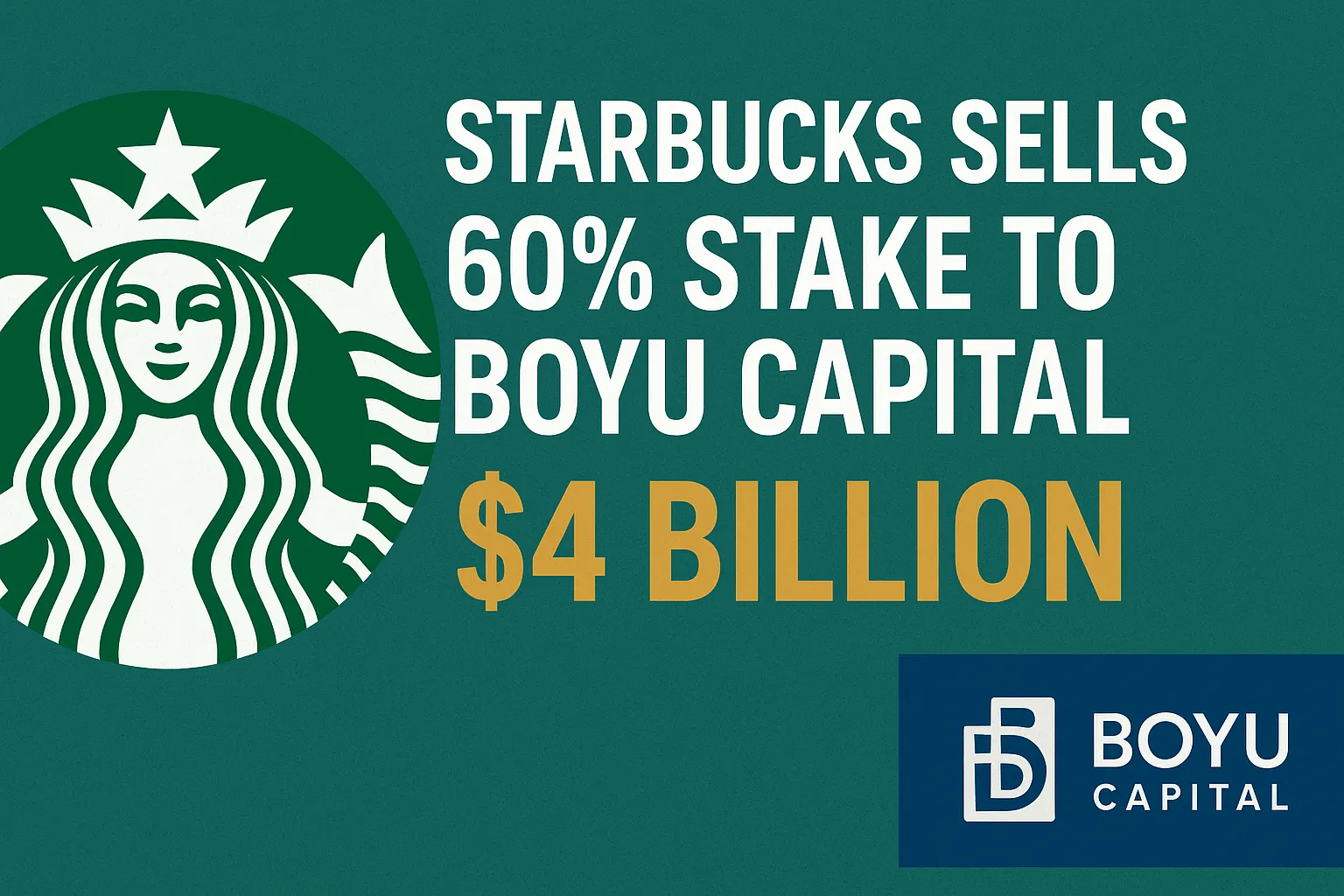
Global coffee giant Starbucks Corporation has announced that it will sell a 60% stake in its China retail operations to Boyu Capital, a Hong Kong–based private equity firm. The deal, valued at around $4 billion (₹33,000 crore), will allow Starbucks to retain 40% ownership and continue controlling brand and intellectual property rights.
The company described this move as a “strategic partnership” aimed at accelerating growth in China, one of its most important markets. The transaction is expected to be completed by mid-2026.
Purpose of the Deal: Strengthening Local Growth
Starbucks stated that China remains its second-largest market, but rising competition from local coffee chains such as Luckin Coffee and Cotti Coffee has reduced its market share.
Starbucks’ market share in China has reportedly dropped to 14% in 2025 from 34% in 2019, mainly due to the aggressive pricing and rapid expansion of local players.
By partnering with Boyu Capital, Starbucks aims to use the firm’s local business expertise and regional connections to expand its presence more effectively across Chinese cities. Starbucks will continue managing the brand experience while Boyu will oversee daily retail operations.
What Starbucks Gains
This deal will immediately bring in $4 billion in cash inflow for Starbucks.
In addition, the company will continue to earn royalties and equity returns from its 40% stake in the joint venture. Starbucks also confirmed that it will maintain control of key non-retail assets such as the Kunshan Coffee Innovation Park and its Coffee Farmer Support Centers in China.
What Boyu Capital Gains
For Boyu Capital, the deal opens a new chapter in the Chinese retail coffee market.
The firm will manage Starbucks’ store network and plans to expand into Tier-2 and Tier-3 cities. Boyu stated that it aims to retain the brand’s international quality standards while localizing operations to meet Chinese consumers’ evolving preferences.
This could also boost employment opportunities and promote China’s domestic coffee culture.
Global Perspective: A Shift in Strategy
Market analysts view this transaction as part of a broader trend where foreign corporations are partnering with local firms to strengthen their presence in China.
Due to economic slowdowns and regulatory complexities, many global brands are now opting for joint-venture models instead of direct control.
Starbucks’ decision reflects a strategic shift toward shared risk and localized management in emerging markets.
Market Reaction
Following the announcement, Starbucks’ stock rose slightly in after-hours trading.
Investors welcomed the deal, viewing it as a long-term positive step for the company, improving both its liquidity and its growth prospects in China.
Outcome
Starbucks’ $4 billion deal with Boyu Capital marks a turning point in its China journey.
By forming a strong local alliance, the coffee giant hopes to balance brand integrity, pricing strategy, and customer experience in an increasingly competitive environment.
If successful, this partnership could serve as a new model for how international brands operate in complex, high-growth markets like China.
Sources: Starbucks Press Release, Reuters, The Guardian, Business Standard, Times of India




































































